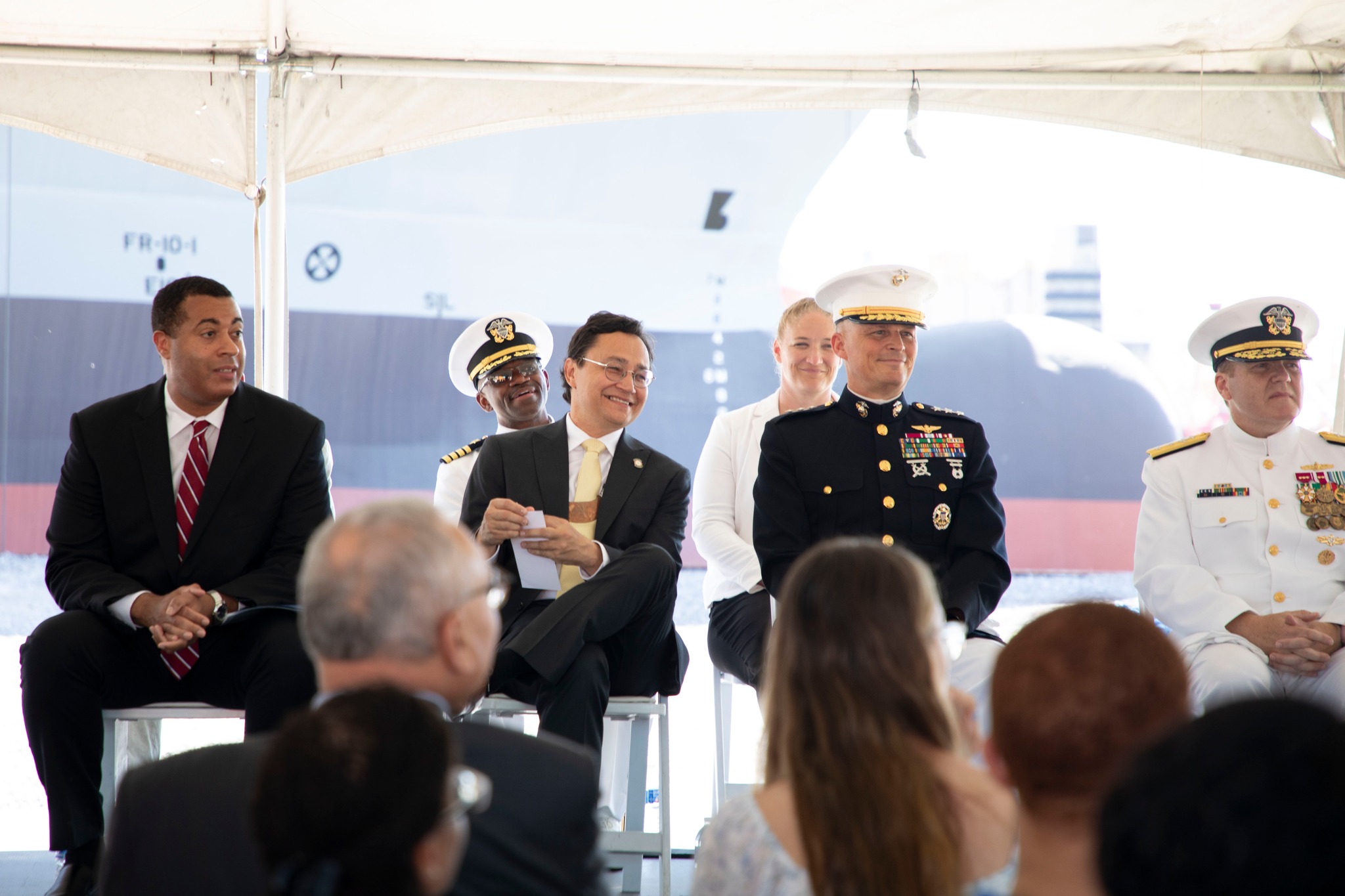
- Details
- By Chuck Hoskin Jr
Guest Opinion. Cherokees are stewards of many proud traditions, from our art, music and festivities to our language, patriotism and spirit of Gadugi.
Cherokee traditions, values and history inform decisions, big and small, to improve our lives and those around us. As stewards, we protect these important traditions so that we can pass them along to our children.
Among our most cherished traditions is the Cherokee commitment to military service. Our Cherokee people have stood as protectors of this country throughout time, contributing in every major battle and war. Cherokees disproportionately serve in the military – meaning Cherokees choose military service more often than the average of other demographics.
My own father, Chuck Hoskin, answered the call to service, joining the U.S. Navy after his Vinita High School graduation during the Vietnam era. My grandfather, Samuel Charles Hoskin, was a veteran of World War II, and his uncle, Ned Hoskin Jr., served and died in France during World War I.
Although I never served in the military, it was a deep honor for me and First Lady January Hoskin on June 8th to join Cherokee veterans, including Cherokee Council Member Johnny Jack Kidwell and Secretary of Veteran Affairs S. Joe Crittenden, and other Cherokee Nation leaders to christen the USNS Cherokee Nation.
The ship is the Navy’s newest towing and rescue ship. It’s the second ship in its class and will be operated by the Navy’s Military Sealift Command. Nearly complete, the ship will bear a crew of more than 60 and play a critical role in the country’s national defense strategy.
For as long as she sails, this ship will be significant to the Cherokee people because of what it stands for - resilience and service and friendship. The USNS Cherokee Nation is the fifth U.S. ship named in honor of the Cherokee people and the first since a World War II-era tugboat, dubbed the “Cherokee.”
Wado to Deputy Speaker of the Council Victoria Vazquez for serving as the sponsor of the USNS Cherokee Nation. Christenings are a longstanding naval tradition to imbue a ship and its future crews with strength and a spirit of service.

Just as the ship’s voyages will benefit from the spirit of Cherokee traditions, bearing our great name truly extols the many Cherokee veterans, active-duty service members and those who gave their life in service to our country.
The christening celebrates their service and the sacrifice of all Cherokee military families. My participation and seeing the adorned ship afloat – even as a non-veteran – was among my proudest moments as Principal Chief.
Chuck Hoskin, Jr. is the principal chief of the Cherokee Nation.
More Stories Like This
In Unity and CommitmentProtecting Our People through Human Trafficking Awareness
It is Time for Animal Behavior to Become Its Own Discipline
Native People Recognize ICE Violence. You Should Too.
Building a 21st Century Cherokee Healthcare Workforce
Help us defend tribal sovereignty.
At Native News Online, our mission is rooted in telling the stories that strengthen sovereignty and uplift Indigenous voices — not just at year’s end, but every single day.
Because of your generosity last year, we were able to keep our reporters on the ground in tribal communities, at national gatherings and in the halls of Congress — covering the issues that matter most to Indian Country: sovereignty, culture, education, health and economic opportunity.
That support sustained us through a tough year in 2025. Now, as we look to the year ahead, we need your help right now to ensure warrior journalism remains strong — reporting that defends tribal sovereignty, amplifies Native truth, and holds power accountable.
 The stakes couldn't be higher. Your support keeps Native voices heard, Native stories told and Native sovereignty defended.
The stakes couldn't be higher. Your support keeps Native voices heard, Native stories told and Native sovereignty defended.
Stand with Warrior Journalism today.
Levi Rickert (Potawatomi), Editor & Publisher

